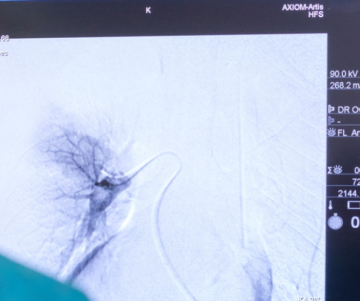
Telemedicine’s Role in Pain Management Clinics in Snellville, GA
Samuel Butt | February 15, 2024 | 0 | Health CareIn today’s fast-paced world, the landscape of healthcare is constantly evolving. One significant advancement that has revolutionized patient care is telemedicine. Telemedicine refers to the remote delivery of healthcare services using telecommunications technology. Its role in pain management clinics, particularly in Snellville, GA, has been transformative, offering new avenues for patients to access quality care conveniently.
Understanding Telemedicine
Telemedicine encompasses various digital platforms, including video conferencing, mobile applications, and secure messaging systems. Through these technologies, patients can consult with healthcare providers remotely, without the need for in-person visits.
Importance of Telemedicine in Pain Management
Pain management clinics in Snellville, GA, have embraced telemedicine as a vital tool in enhancing patient care. By leveraging telemedicine, these clinics can reach a broader patient population, including those in remote areas or with mobility limitations.
Overview of Pain Management Clinics in Snellville, GA
Snellville, GA, boasts several pain management clinics that have integrated telemedicine into their practice. These clinics offer a range of services, including chronic pain management, interventional procedures, and rehabilitative therapies.
Advantages of Telemedicine in Pain Management
Accessibility and Convenience
Telemedicine eliminates the barriers of distance and transportation, allowing patients to consult with specialists from the comfort of their homes. This convenience is especially beneficial for individuals with chronic pain conditions who may find traveling challenging.
Reduced Wait Times
With telemedicine, patients can schedule appointments more efficiently, reducing wait times and minimizing disruptions to their daily lives. This streamlined approach ensures timely access to care, leading to improved patient outcomes.
Cost-Effectiveness
Telemedicine reduces healthcare costs associated with travel expenses and missed workdays. Patients can receive high-quality care without incurring additional financial burdens, making pain management more affordable and accessible.
Enhanced Continuity of Care
Through telemedicine, pain management clinics can maintain regular communication with patients, ensuring continuity of care between appointments. This proactive approach promotes better treatment adherence and patient engagement, ultimately leading to improved health outcomes.
Challenges and Solutions
Technological Barriers
Some patients may face challenges in using telemedicine platforms due to limited technological proficiency. Pain management clinics address this issue by providing user-friendly interfaces and technical support to ensure seamless virtual consultations.
Privacy and Security Concerns
Protecting patient privacy and data security is paramount in telemedicine. Pain management clinics implement robust encryption protocols and adhere to strict regulatory standards to safeguard patient information and maintain confidentiality.
Integration with Traditional Care Models
Integrating telemedicine with traditional care models requires careful coordination and communication among healthcare providers. Pain management clinics adopt collaborative approaches to ensure seamless transitions between virtual and in-person visits, enhancing the overall patient experience.
Regulatory Compliance
Complying with regulatory requirements, such as HIPAA regulations, is essential for telemedicine practices. Pain management clinics undergo rigorous audits and assessments to ensure adherence to legal and ethical standards, thereby maintaining patient trust and confidence.
Patient Experience and Satisfaction
Personalized Care
Telemedicine enables pain management clinics to deliver personalized care tailored to each patient’s unique needs. Through virtual consultations, healthcare providers can gather comprehensive medical histories and develop individualized treatment plans, fostering a patient-centric approach to care delivery.
Improved Communication
Effective communication is key to successful pain management. Telemedicine facilitates regular communication between patients and providers, allowing for timely updates on treatment progress and adjustments as needed. This open dialogue strengthens the patient-provider relationship and promotes collaborative decision-making.
Empowerment Through Education
Telemedicine platforms offer valuable educational resources and tools to empower patients in managing their pain effectively. From self-care strategies to medication management tips, patients gain the knowledge and skills needed to take control of their health and well-being.
Future Outlook
As technology continues to advance, the future of telemedicine in pain management holds immense promise. From artificial intelligence-driven diagnostics to virtual reality-based therapies, the possibilities are endless. Pain management clinics in Snellville, GA, remain at the forefront of innovation, leveraging telemedicine to improve patient outcomes and enhance quality of life.
Conclusion
In conclusion, telemedicine plays a pivotal role in pain management clinics in Snellville, GA, offering a blend of accessibility, convenience, and personalized care. Despite challenges, such as technological barriers and regulatory compliance, telemedicine continues to thrive, shaping the future of healthcare delivery. By embracing telemedicine, pain management clinics empower patients to take an active role in managing their pain and achieving optimal health outcomes.


